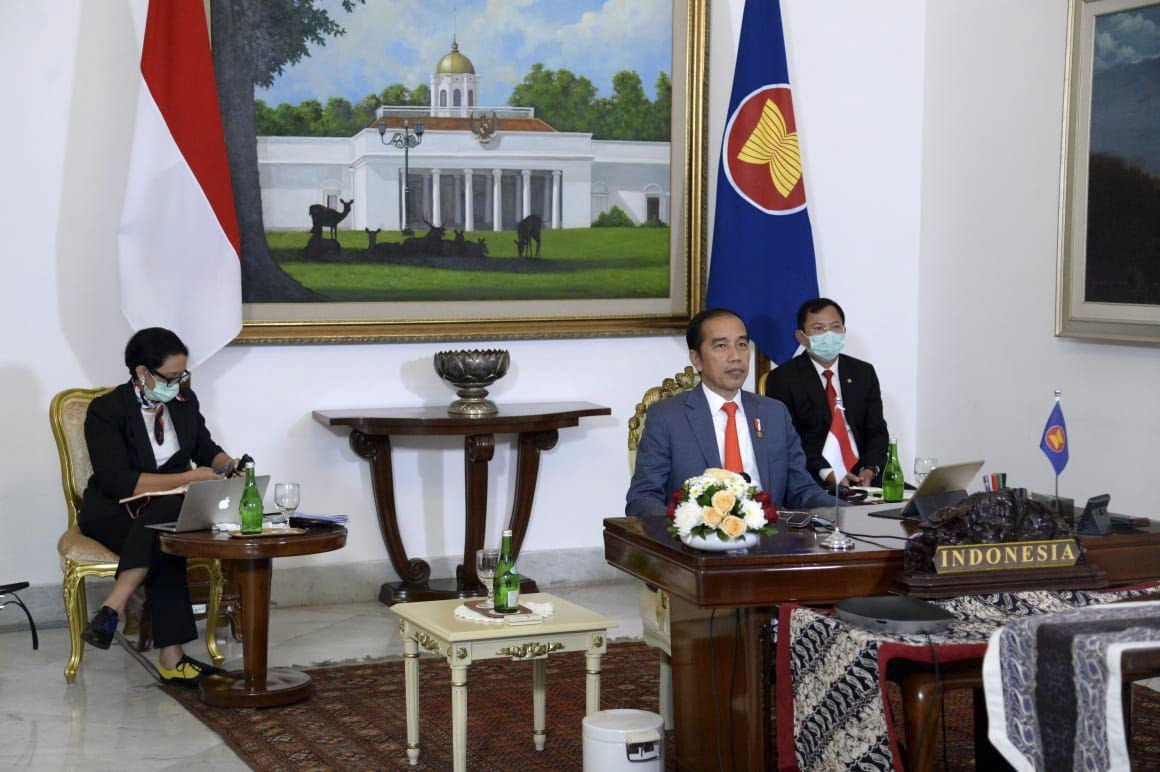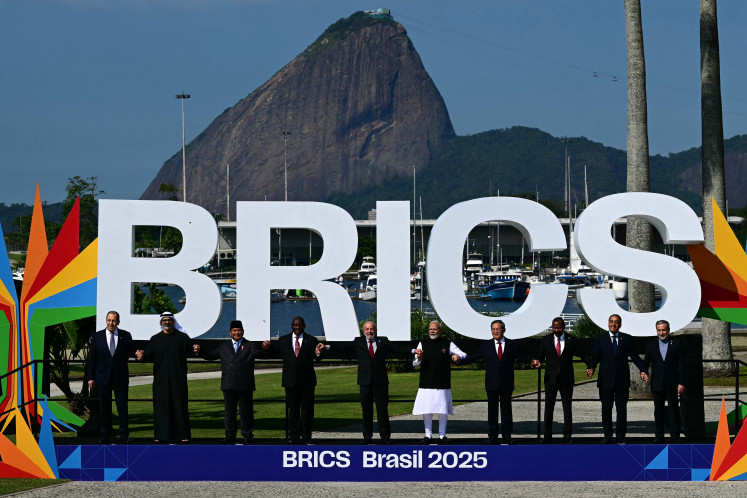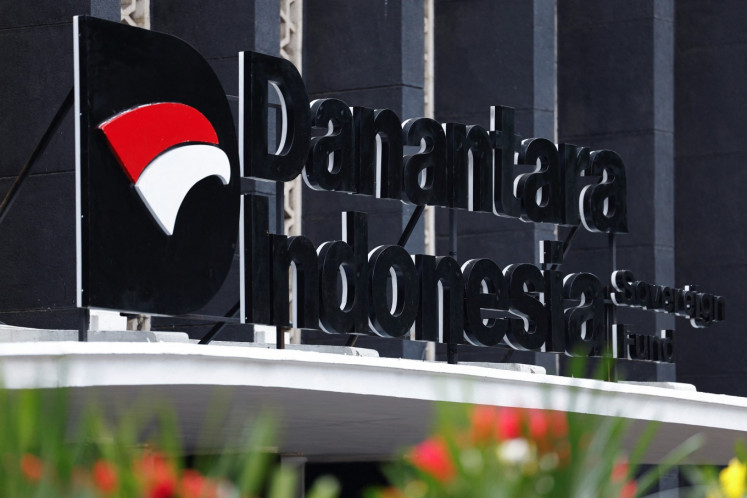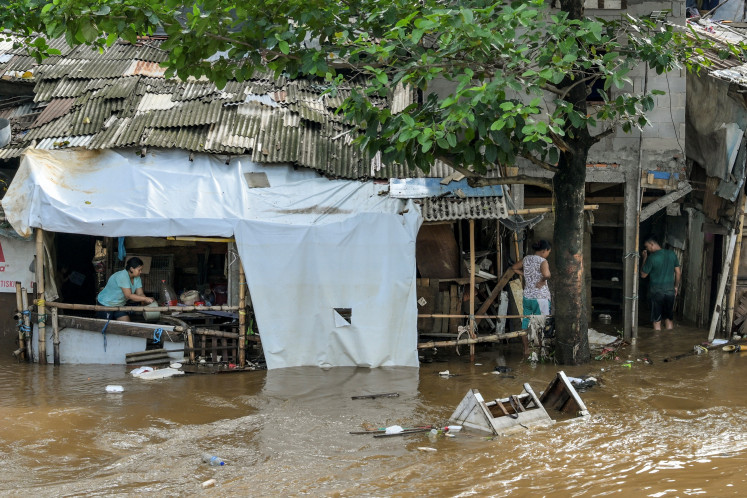Popular Reads
Top Results
Can't find what you're looking for?
View all search resultsPopular Reads
Top Results
Can't find what you're looking for?
View all search resultsIndonesia pins hope on ASEAN role as virus affects Indo-Pacific dynamic
Change text size
Gift Premium Articles
to Anyone
C
OVID-19 has made a profound and unprecedented impact on how countries interact with one another, especially in the Indo-Pacific region, but Indonesia reserves hope that ASEAN will play a role in maintaining regional stability.
As a result of the pandemic, international relations will likely be driven by stronger right-wing politics going forward, Foreign Minister Retno LP Marsudi has said, which is likely to weaken the multilateral system and reinforce transactional politics.
Retno said geopolitical rivalries between the United States and China had gone beyond the usual ideological and trade tensions and had turned into questions about the origin of the virus and politicization at the World Health Organization.
“We are seeing that the rivalry between the US and China is [...] actually polarizing and spilling into other spaces,” she said in a recent discussion on geopolitics hosted by the Golkar Party.
“Uncertainty is increasingly inevitable.”
Currently suffering from the highest number of infections in the world, the US under President Donald Trump has undermined the WHO by accusing it of siding with China. Both sides have also pointed fingers at each other on the source of the virus and pinned one another as being responsible for the damages.
Center for Strategic and International Studies (CSIS) executive director Philips J. Vermonte has called on Indonesia to continue utilizing ASEAN to maintain “dynamic equilibrium” in the Indo-Pacific, even though its member states are struggling with their own domestic problems.
“Indo-Pacific” is a term describing the region straddling the Indian and Pacific oceans, replacing the previously preferred “Asia-Pacific” that some experts argue takes the focus away from the rise of China, highlighting the US-China rivalry.
Last year, at the initiative of Indonesia, ASEAN adopted the ASEAN Outlook on the Indo-Pacific to reinforce its position on maintaining peace, security, stability and prosperity through dialogue and by building trust.
Philips said the Indo-Pacific as a strategic concept was used by other countries in the region as a “geopolitical vehicle”, but ASEAN insisted that it must be used to forge functional cooperation, including on development and Sustainable Development Goals.
Because of the pandemic, he said that foreign policy and development should become more entrenched with one another, with a particular emphasis on global health policy, global disaster risk reduction, economic policy and democratization.
Other powers in the emerging Indo-Pacific regional order have already put their money where their mouths are.
Last month, Australia announced a new development package policy for Indo-Pacific pandemic response and recovery.
Australian Ambassador to Indonesia Gary Quinlan said the package would divert programs and funds into specific areas of the COVID-19 response, including in health security, regional stability and economic recovery.
“We face a more dramatically changing strategic situation and countries were starting to develop new partnerships with each other as a result in order to be able to reinforce each other with more resilience,” Quinlan said during the virtual discussion.
Retno argued that in ASEAN’s perspective on the Indo-Pacific, the achievement of SDGs remains a priority, especially for least-developed and low-income countries who faced major setbacks in achieving the goals by 2030.
“We are hoping that ASEAN remains an engine to maintain stability in the region and to be very honest, it is not an easy task for ASEAN to be able to play that role,” Retno said, acknowledging diverging interests among member states and the additional pressure from other players in the region.
As a possible avenue of cooperation for a more robust COVID-19 response, Philips suggested that ASEAN could explore initiatives under the ASEAN Plus Three mechanism, particularly because the three partner countries involved — China, South Korea and Japan — are influential countries with relative success in handling the outbreak.
“They are also engines of growth in our regions of Southeast Asia and East Asia. Today the Indo-Pacific can be relatively too broad in the sense that [countries] are all busy facing domestic problems, so the ASEAN Plus Three may become our engine to jumpstart the economy and future cooperation related COVID-19,” he said.










